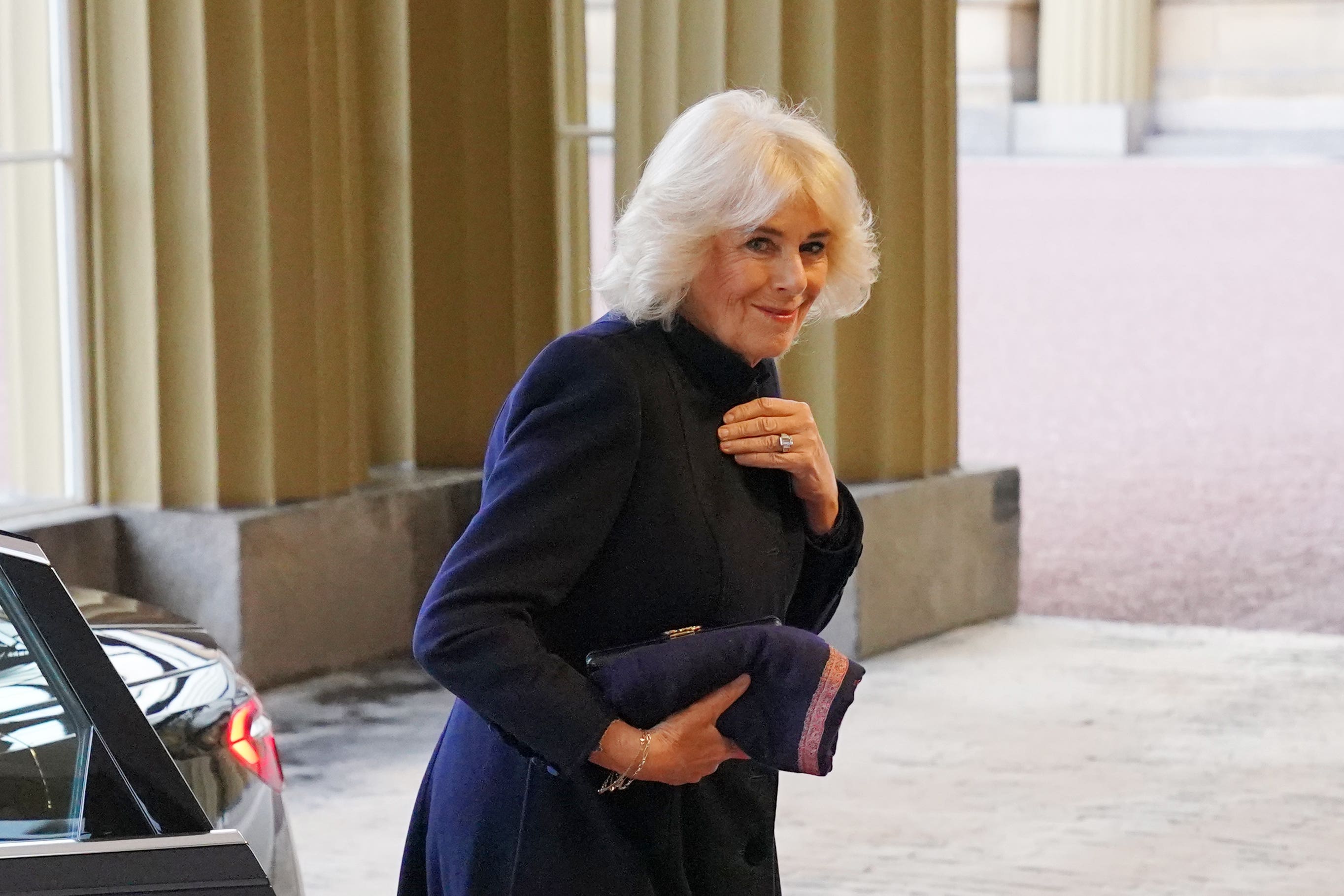Queen reveals she is recovering from pneumonia – what we know so far
Camilla temporarily stepped back from some duties in November due to a chest infection.

Your support helps us to tell the story
From reproductive rights to climate change to Big Tech, The Independent is on the ground when the story is developing. Whether it's investigating the financials of Elon Musk's pro-Trump PAC or producing our latest documentary, 'The A Word', which shines a light on the American women fighting for reproductive rights, we know how important it is to parse out the facts from the messaging.
At such a critical moment in US history, we need reporters on the ground. Your donation allows us to keep sending journalists to speak to both sides of the story.
The Independent is trusted by Americans across the entire political spectrum. And unlike many other quality news outlets, we choose not to lock Americans out of our reporting and analysis with paywalls. We believe quality journalism should be available to everyone, paid for by those who can afford it.
Your support makes all the difference.The Queen has been urged to take more time to recover after a bout of pneumonia.
At the start of November it was announced that Camilla had been diagnosed with a chest infection and was under doctors’ supervision.
The 77-year-old was forced to withdraw from her engagements so she could rest at home.
She has now revealed that her chest infection was a form of pneumonia.
It is understood Camilla’s condition was viral, not bacterial, and she no longer has pneumonia.
According to NHS.uk, most people get better in two to four weeks after a diagnosis.
But it has emerged that the Queen is suffering from post-viral fatigue and is missing the outdoor elements of the Qatari state visit after being urged by her doctors to take more time to recover.
Pneumonia is inflammation of the lungs which is usually caused by an infection such as flu, the common cold or other viruses.
Older people, babies and people with heart or lung conditions are at risk of becoming seriously ill due to the condition.
Symptoms include a cough, shortness of breath, fever, chest pain, aches, fatigue, a loss of appetite, wheezing and feeling confused.
Dr Andrew Whittamore, clinical lead at Asthma and Lung UK, said: “A chest infection affects your lungs or airways. Symptoms include a chesty cough, wheezing or shortness of breath, a high temperature of 38C or above, and chest pains or discomfort.
“While most chest infections are not serious and last around three weeks, some can develop into more serious illnesses such as pneumonia or bronchitis.
“They can also worsen underlying health conditions such as asthma or chronic obstructive pulmonary disease (COPD).
“It’s important to see your GP if you think you have a chest infection, especially if you have a lung condition.
“Pneumonia is the leading cause of emergency hospital admissions every winter, placing significant pressure on the NHS.
“The condition, usually caused by a bacterial infection or a virus, leads to the tissue in one or both lungs to swell or become inflamed.
While mild pneumonia can be treated at home, in some cases, pneumonia can be life-threatening and require hospital treatment
“While mild pneumonia can be treated at home, in some cases, pneumonia can be life-threatening and require hospital treatment.”
He added: “We would recommend getting all vaccines you are eligible for this winter, including pneumonia, flu, and Covid-19.
“If you are eligible for the free pneumonia vaccine, which includes all adults aged over 65, please have it this winter.
“If you would like to receive tailored advice about how to look after your lung condition over winter, please visit our website.”
Many people diagnosed with pneumonia will be given antibiotics to treat the condition.
Some people with chest infections can be prescribed steroids, which help open the airways in the lungs and make breathing easier.
A number of groups can be at higher risk of developing serious chest infections. These include babies and very young children, children with development problems, people who are very overweight, elderly people, pregnant women, people who smoke, and people with long-term health conditions.
Camilla used to be a heavy smoker – a habit her husband Charles loathed – but she gave up many years ago.